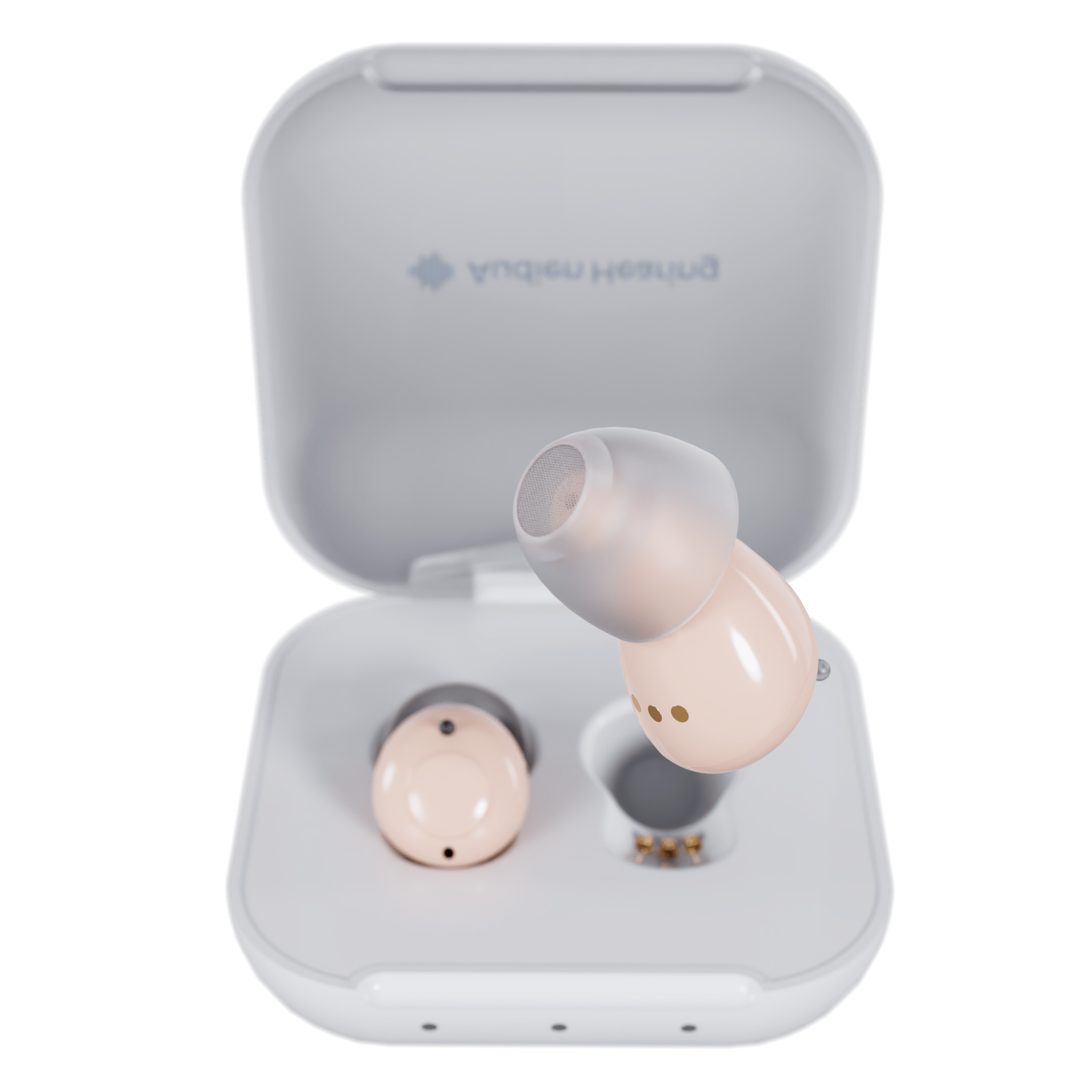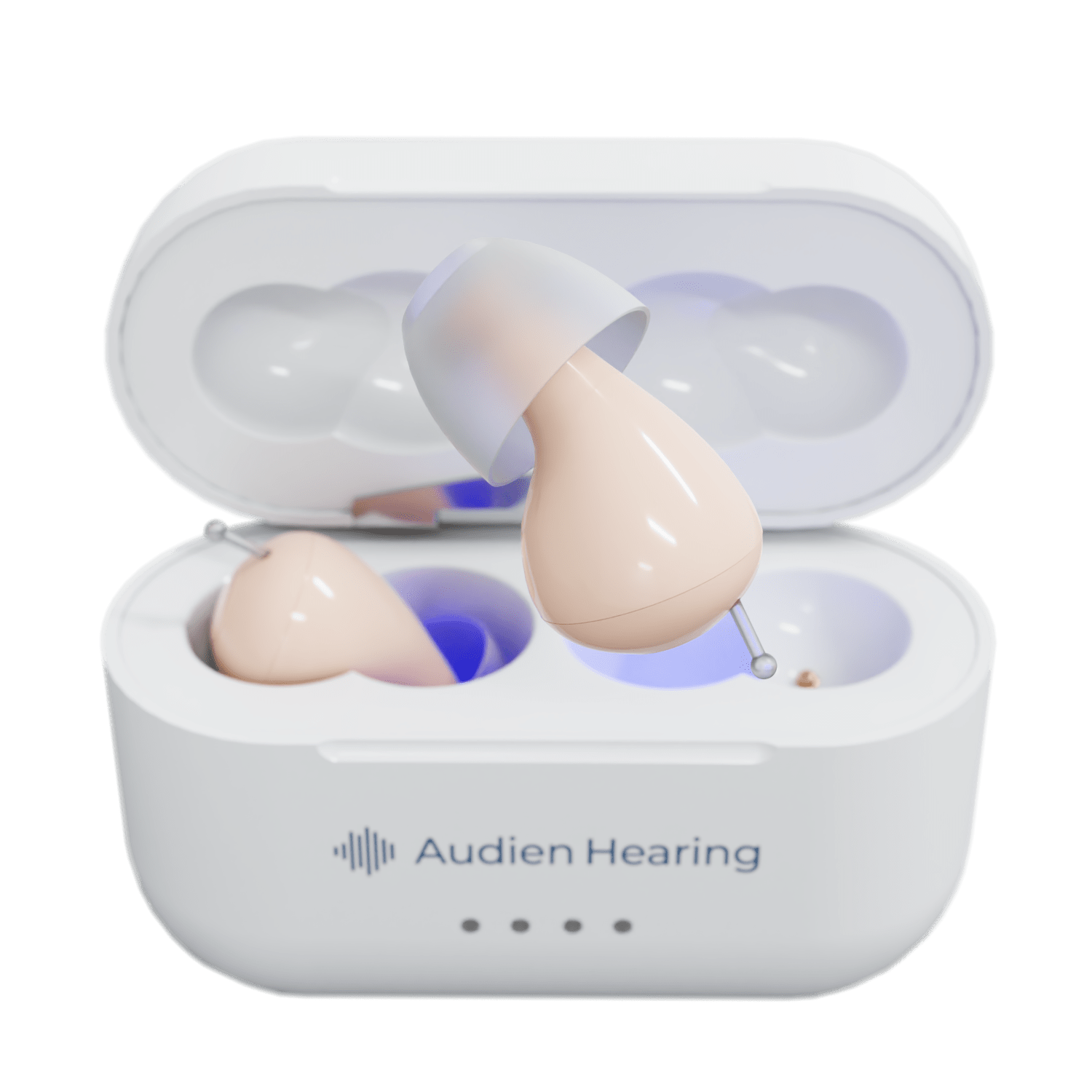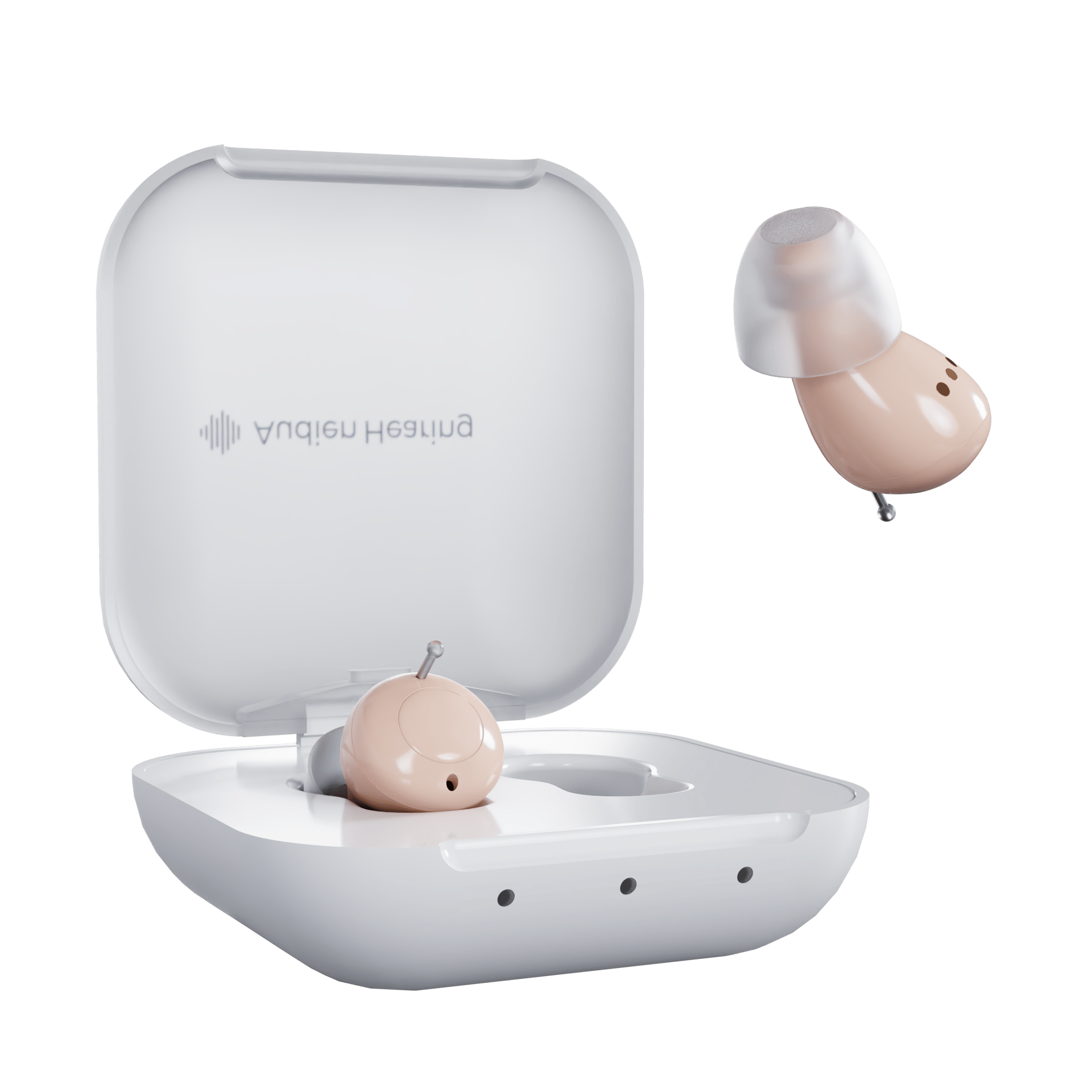If you're reading this because your partner's hearing has become a concern, you're likely feeling frustrated, worried, and maybe even a little resentful. I get it. As an audiologist, I've seen how hearing loss affects not just the person experiencing it, but everyone around them, especially their spouse.
Maybe you've stopped saying "I love you" spontaneously because you're tired of repeating it. Maybe date nights have become silent dinners. Maybe you feel like roommates instead of partners. The good news? You can make a tremendous difference in helping your partner address their hearing loss. Here are the five essential steps that actually work.

1. Recognize the Signs They're Missing (Because They Often Don't)
People with gradual hearing loss rarely notice it themselves. They adapt slowly, making excuses and compensations without realizing it. As their spouse, you see the full picture, and it's probably challenging to witness.
The TV volume wars are usually your first clue. You walk into the room and it's blasting like a movie theater. You turn it down, they turn it back up, and suddenly you're watching shows in separate rooms. But volume battles are just the beginning of the distance hearing loss creates.
Watch for these telltale patterns that are slowly eroding your connection:
-
Constantly asking "what?" until you just say "never mind"
-
Responding inappropriately to questions (they're guessing at what you said)
-
Dominating conversations because it's easier to talk than to struggle hearing
-
Making excuses to skip dinner parties, family gatherings, restaurants
-
Blaming you: "You mumble!" or "Stop talking so fast!"
2. Master Daily Communication While Protecting Your Relationship
These techniques will save your sanity and preserve the intimacy hearing loss threatens to steal:
Get their attention first. A gentle touch on the shoulder or saying their name before speaking prevents the frustration of being "ignored." This simple step can stop resentment from building with every unheard comment.
Face them directly. We all read lips more than we realize. Position yourself where they can see your face. Those little intimate moments, whispering something funny about another couple at a restaurant, sharing a private joke during a family gathering, they all depend on this visual connection now.
Speak clearly, not loudly. Shouting distorts words and creates tension. Instead, slow down slightly and articulate consonants crisply. Think news anchor, not drill sergeant. Your tone should still carry love, not frustration.
Rephrase, don't repeat. If "Did you call the plumber?" didn't work, try "Is the plumber coming today?" Different words use different frequencies and might break through. Plus, it keeps you from that defeated feeling of saying the same thing three times.
Control the environment. Turn off the TV during conversations. Move away from the dishwasher. These small adjustments mean the difference between connection and isolation. Create spaces in your home where conversation flows easily, preserving those casual chats that keep couples close.
3. Have "The Conversation" That Changes Everything
This discussion can transform your future, but approach determines outcome. Here's exactly how to do it:
Choose neutral timing. Not after they've asked "what?" for the tenth time, but during a calm moment, maybe during a walk or over morning coffee. Create safety first.
Lead with love and specific loss: "I love you, and I'm worried we're losing each other. Yesterday, when I told you about my promotion, you smiled and nodded, but I could tell you didn't hear the details. I wanted to celebrate with you, but instead I felt alone."
Use concrete examples that show what hearing loss is stealing from both of you: "Remember how we used to lie in bed and whisper about our days? Now we don't because it's too frustrating. I miss that closeness." Or "When Emma told you she made the soccer team, you didn't react. She looked crushed. She thinks you don't care, but I know you just didn't hear her."
Share your feelings without accusation: "I feel lonely sitting next to you at movies because we can't share comments anymore." "I'm exhausted from being your translator at family dinners." "I miss laughing together at our shows."
Most importantly, offer partnership and hope: "I found some affordable options that could help us get back to being us. Will you look at them with me? I want to stop losing moments with you."
4. Navigate Their Objections with Love and Logic
Be ready for resistance. Fear drives these objections, and your response can either fuel that fear or dissolve it:
"Hearing aids make you look old." Your response: "Modern hearing aids are nearly invisible. Look, the Audien Atom Pro 2 is tiny and sits completely in your ear. The Ion series is so sleek it disappears behind your ear. But honestly? I'd rather see you wearing hearing aids than watch you disappear from conversations."
"They're too expensive." Your response: "I thought so too, but listen to this: traditional ones cost $4,000-$7,000, which is insane. But Audien hearing aids start at just $99. That's less than we spend on cable in two months. For less than our anniversary dinner, we could have real conversations at every dinner. Plus, there's a 45-day trial. If they don't bring us closer, we return them. Zero risk."
"My friend hates theirs." Your response: "When did your friend get them? Technology has transformed. The Ion Pro has six different settings created by audiologists and Grammy-winning sound engineers. There's literally a setting for restaurants, one for watching TV, one for conversations. It's like having an audiologist in your pocket. The Atom Pro 2 even cleans itself with UV light while charging. Your friend's experience is outdated."
"I'm not that bad yet." Your response: "But we are that bad. We're not connecting like we used to. Last week, I said 'I love you' three times before you heard me. By the third time, the moment was gone. I don't want to lose any more moments with you."
5. Support the Journey Back to Each Other
Getting hearing aids isn't the end, it's the beginning of rediscovering your relationship. Your support during this phase determines whether you'll truly reconnect:
The first two weeks will test patience. Everything sounds overwhelming to them. Their own voice seems strange. They might want to quit. This is when you remind them: "Remember why we're doing this. Your brain is relearning to hear. Every day gets easier." Encourage just a few hours of wear initially. Celebrate small wins: "You heard the microwave beep!" "You caught what the server said!"
Weeks three and four bring breakthrough moments. They'll rediscover forgotten sounds, birds singing, the cat purring, your humming in the shower. But more importantly, they'll rediscover you. The first time they hear your whispered "good morning" without repetition, the first joke they catch at dinner, the first movie you enjoy together without subtitles, these moments rebuild your connection.
By month two, you're finding your new normal. Whether they chose the app-controlled Ion Pro with Bluetooth streaming or the simple elegance of the Atom series, the technology fades into the background. What remains is conversation flowing naturally again, laughter returning to your home, and the intimate verbal connection that makes marriage thrive.
But don't forget yourself in this process. You've been carrying the communication burden for both of you. You're exhausted. It's okay to say, "I need a break from repeating myself. Let's continue when you're wearing your hearing aids." Set boundaries with love. Your resentment helps neither of you.
The Future You're Fighting For
Imagine six months from now: Morning coffee includes easy conversation about the day ahead. You whisper secrets in bed again. Restaurant dates involve actual conversation, not exhausting lip-reading sessions. Family gatherings are joyful, not stressful. You're partners again, not patient and caregiver.
The couples who successfully navigate hearing loss together often say their relationships grew stronger. They learned to fight for their connection, to prioritize each other over pride or fear. They chose love over loss.
Every day your partner goes without addressing their hearing loss is another day of missed "I love you"s, unheard laughter, and connections that slip away. But it doesn't have to be this way.
If your partner is ready to explore solutions, Audien makes it easy to say yes. With models starting at just $99 and a 45-day risk-free trial, the barrier isn't money or commitment, it's just taking that first step. Whether they need the invisible design of the Atom Series or the advanced features of the Ion Pro with its six hearing profiles, better hearing means a better relationship.
Your love deserves to be heard. Every word of it. And with lifetime support from Audien, you'll never navigate this journey alone. Because when one person gets hearing aids, two people get their relationship back.
[DISCOVER BETTER HEARING WITH AUDIEN]













